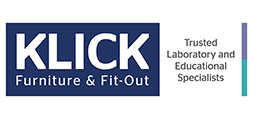04 Apr Lab Sustainability – How to Improve Your Carbon Footprint
Lab Sustainability – How to Improve Your Carbon Footprint
Laboratories play a critical role in the scientific community, but they also consume a significant amount of energy and resources. As society becomes more aware of the impact of our actions on the environment, it is crucial that stakeholders take steps to improve lab sustainability.
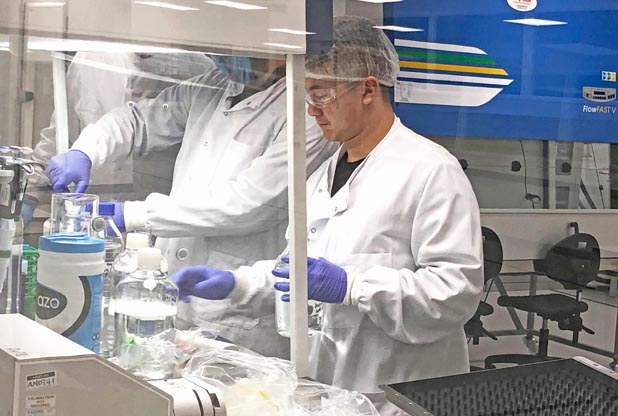
Automated Processes for Improved Laboratory Sustainability
Automated processes can help reduce energy usage by controlling building operations such as temperature, lighting and security. This enables laboratories to improve operational efficiency and minimise their buildings’ environmental impact.
Wireless sensors are able to monitor vital information and data is then sent securely to the cloud to be viewed with a PC or app. If set values are exceeded an automatic email or SMS alert is sent to the user.
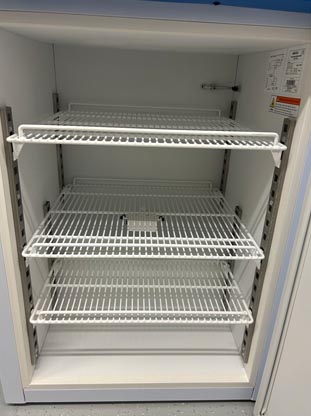
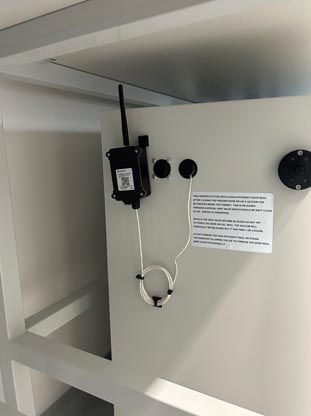
Freezers and Refrigerators – these can also be monitored and should only be set as low as needed for the required application or specific sample storage. In a large laboratory facility significant reductions can be made by increasing freezer temperatures by up to 10 degrees. Ultra-low temperature freezers (ULTs) can operate at -80 degrees but it is worth researching whether it is safe to increase your freezer temperature by a few degrees, rather than blindly setting them all at the lowest temperature.
You might be interested in making your lab more sustainable by participating in the Freezer Challenge.
Air Quality – Digital sensors can monitor a number of environmental parameters including temperature, humidity, oxygen, carbon dioxide, carbon monoxide, VOCs, Ozone and particulate matter.
Leak Detection – Water leak detection sensors can monitor your laboratory facility sending alerts as soon as water is detected. This minimises the risk of any long term water damage or wastage.
To discuss ideas on streamlining your laboratory energy consumption you can contact Logicall for advice.
Other Ways to Improve Sustainability in Your Lab
Sustainable Choices for Worktop Materials
When selecting your laboratory work surface it is important to consider factors such as chemical resistance and durability. If the wrong material is selected this might result in the need for the worktop to be replaced prematurely, which would be costly and generate unwanted waste.
If you are unsure of which substances you might need to use in the future then it might be safer to opt for Trespa TopLab Plus which offers resistance to a wider range of chemicals.
If you are looking for a sustainable worktop option consider using TopLab PLUS ALIGN. This material has all the benefits of Trespa TopLab PLUS but with 85% bio-based carbon content to support commitment to the use of renewable materials.
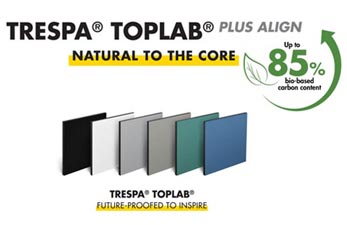
Laboratory Furniture – Sustainable Options
The procurement of robust furniture with higher quality materials avoids the need for frequent replacements and contributes to improved sustainability.
Flexible options, including mobile laboratory furniture such as workstations and mobile cabinets, allow for changes in workflow or staffing levels.
Ultimately these can be moved to a different location if expansion of start-up companies necessitates relocation. Maximising the use of lab space by planning layouts for optimum efficiency is also a good use of resources.
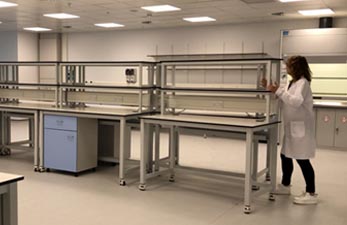
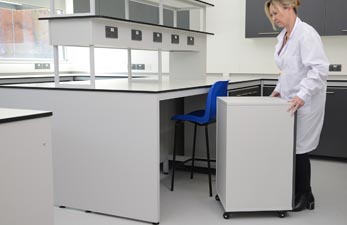
Laboratory Equipment – Consider Recycling or Buying Refurbished Items
If you are buying in new lab equipment, consider what you will do with any redundant kit that is no longer required. Rather than sending perfectly good surplus equipment to landfill, there is the option of selling used lab equipment.
In addition to buying pre-owned equipment, Richmond Scientific also offer used lab equipment for sale in the UK and worldwide. You could contact them to see if they have any relevant refurbished lab equipment that would be suitable for your project.
If your budget is limited they offer quality used equipment at a significantly lower price than new, and help to enable access to scientific equipment for all budgets.
If lab equipment is purchased carefully and inspected regularly, it’s possible to find cost-effective refurbished options and help with your sustainability goals.
Reduce Energy Consumption
Using energy-efficient lighting such as LEDs can reduce energy usage. It is also possible to use specialised ventilation systems that limit the amount of energy used to heat or cool the laboratory space.
Conserving Water in a Laboratory
Water is a precious resource that is becoming increasingly scarce. The average laboratory consumes a significant amount of water per day. One way to reduce water consumption is to implement a system that captures and recycles water.
It is also possible to use low-flow taps and showers to minimise water usage in the laboratory.
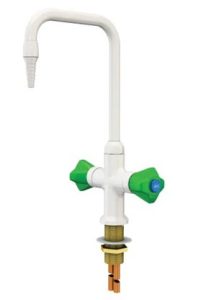
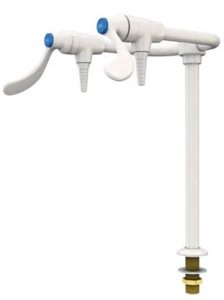
Watersaver provide a range of water-conserving laboratory taps with internal flow controls to limit flow to 4 litres per minute.
Implement Recycling Programs
Like all other offices, laboratories generate a lot of waste. As much as possible, labs should recycle items like paper, cardboard, plastics, and glassware. Recyclable items could be separated by lab users and sent for recycling.
Improve Procurement of Lab Supplies
Improving procurement is another way to make laboratories more sustainable. This could involve sourcing environmentally friendly goods, including supplies and materials that are made through sustainable processes which will reduce the carbon footprint of the laboratory.
Encourage Sustainable Behaviour
Each individual in the laboratory should be aware of the benefits of sustainable practices. Training programs could be established to educate lab users on the importance of energy conservation and the need to reduce waste.
Establish a Sustainability Committee
A sustainability committee helps develop actionable steps towards laboratory sustainability. The committee’s members could be selected from different departments so that their diverse opinions create a comprehensive approach to achieving sustainability. Based on the members’ suggestions, the committee could propose new initiatives for improved sustainability.
Implement Energy Efficient HVAC Protocols
The HVAC system is another area where energy consumption could be reduced. Encouraging behavioural changes, like ensuring each fume cupboard sash is closed when not in use either automatically or manually will have an impact on energy consumption. Also, reducing the number of contaminants stored in the laboratory and the introduction of good handling practices will minimise contaminant release and significantly reduce the need for extraction. For further improvements, existing fume cupboards could be replaced with variable air volume (VAV) cupboards.
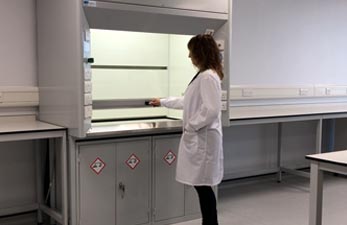
Further Advice on Laboratory Sustainability
If you are looking for advice on sustainability in your laboratory you could contact your local Growth Hub. There is a network of 38 Growth Hubs nationwide which offer advice to businesses. The Manchester team are proactive in encouraging local businesses to start their Net Zero journey and run online courses to help with sustainability issues.
In conclusion, improving the sustainability of laboratories is a collective responsibility that requires a change of attitudes and habits. Laboratory management should strive to implement sustainable policies and practices that protect the environment and ensure energy and resource efficiency.
By reducing energy consumption, minimising water usage, promoting recycling programs, improving procurement, and encouraging sustainable behaviours, laboratories can make a significant contribution to the larger campaign towards a more sustainable future.
If you would like any advice on designing a future proofed laboratory with sustainability features please call 0161 998 9726 or contact us by email to discuss your plans.
Sources
Logicall wireless monitoring solutions https://logicallmonitoring.co.uk/
Trespa laboratory worktops https://www.trespa.com/
The Freezer Challenge https://www.freezerchallenge.org/
Watersaver taps and specialists products for laboratory use https://wsflab.com/products/colortech-bt/wels-certified-fittings/
Further Reading
Ideas on sustainable laboratory practices from the Royal Society of Chemistry
